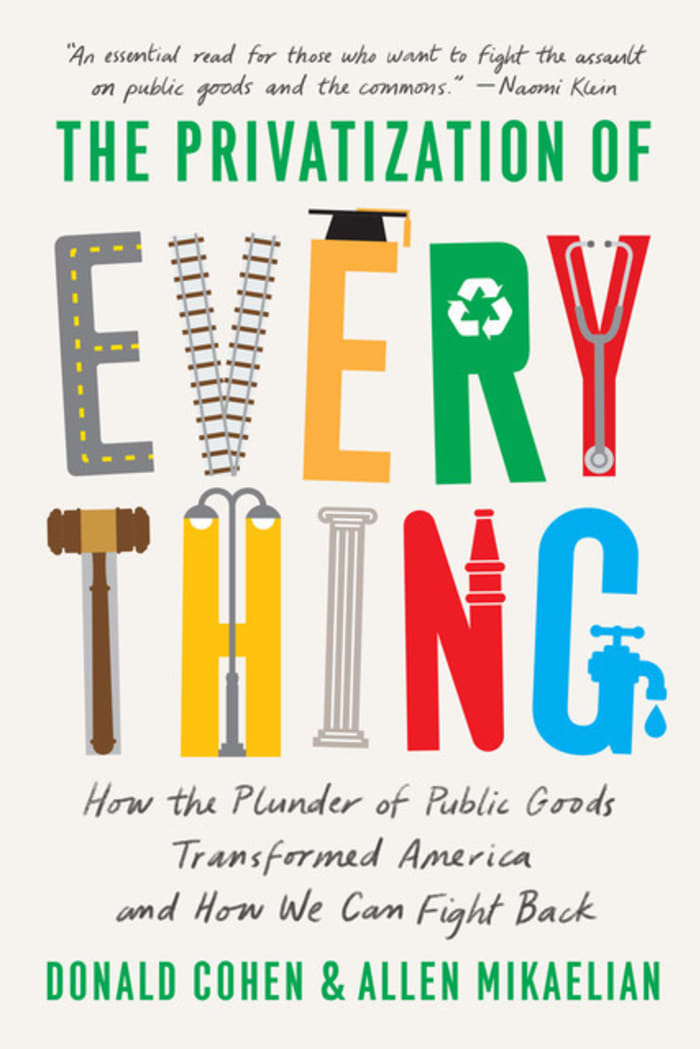This post was originally published on this site
When the pandemic began, the Trump administration doubled down on a privatized response to what was—and what remains—a public health crisis, putting states in competition with each other to buy personal protective equipment (PPE) and COVID-19 tests.
Prices were driven up and state governments were left scrambling to respond. Jared Kushner put it bluntly at the time: “Free markets will solve [the PPE shortage.] That is not the role of government.”
As we now know, that approach failed miserably. The administration then launched Operation Warp Speed, which relied on both private production and government coordination.
Understanding the difference
Bottom line, the market failed, and then the public came to the rescue. We still needed the private sector, but it’s critical to understand the difference between the public and private roles.
The private sector sells things we want and need, like food, smartphones, and gas. The more they sell, the more they earn. That’s logical, but public goals should be focused on the common good and ensuring that everyone has the essentials they need—health care, clean water, education, a sustainable planet, etc.—regardless of status or income. The private sector only sells things to people with enough money to pay for them.
Unfortunately, the singular private pursuit of sales volume can work against public purpose and the common good.
For example, private prison companies—which operate jails, prisons, and immigration detention centers for the government—operate on per diem contracts based on occupancy. These companies have a track record of lobbying for stricter sentencing laws—one of the causes of the world-leading incarceration rate in the United States. They do better when more people are incarcerated and have used their political clout to make that happen. Their interests, therefore, are in direct conflict with growing public sentiment that too many people are locked up.
A quick look at the SEC filings of the GEO Group
GEO,
the multibillion-dollar private prison corporation, makes it clear. The company tells investors that future “demand for correctional facilities could be adversely affected by changes in existing criminal or immigration laws,” like the “decriminalization of drugs” and a “reduction in crime rates.” These are basic policy decisions that governments should be free to make without the pressure of private interests.
Lobbying for a hotter planet
Similarly, fossil-fuel companies earn more when the public consumes more oil products. They have used their considerable resources to oppose action on climate change that would reduce our consumption of fossil fuels—even to the point of funding organizations and policy makers who deny that climate change is real. Simply put, their focus on sales has put us all at risk.

This commentary is based on a new book by Donald Cohen and Allen Mikaelian.
In the Public Interest
Some argue that relying on market-style competition—often called “privatization”—is the best way to distribute public services. As I write in “The Privatization of Everything,” a new book I co-authored with Allen Mikaelian, while competition can generate new products and new ideas, it can have downsides.
For example, charter schools—which are publicly funded but privately operated—were originally intended to be laboratories of innovation to test out new ideas and then share the good ideas widely so they can benefit all students. Competition thwarts that idea. Charter schools compete with traditional public schools for enrollment (and the education dollars that come with each student).
There is ample research to show that, on the whole, charters are no better or worse than public schools. But market-style competition leads some charter schools to cherry-pick better students and use schemes to keep out new students or push out existing students who are more difficult or more costly to educate, such as special-education students or those with behavior issues. Those students might bring down the schools’ test scores and depress future enrollment. For example, one New York City charter school principal kept a “Got to Go” list and came up with ways to all but force students on the list to leave the school.
The problem at the core of a privatized, market model for education is that it depends on creating winners and losers. The idea is that parents will choose the good schools that will survive and grow and avoid the poor schools until they improve or fail.
Of course, parents will try to find the best school for their children. But as a school improvement approach, market-based reforms like charter schools and private school vouchers disrupt families, increase segregation, divide communities, and leave many schools with fewer resources to make improvements and educate students.
Market competition distorts and threatens the fundamental purpose of our public education system. That purpose is to educate every child, offer opportunities for students from disadvantaged communities, and put students from different backgrounds and life experiences in relation with each other. Those things are essential to erasing our increasingly rigid political and cultural divisions, and to rebuilding American democracy.
We shouldn’t forget that there’s room—and need—for both public and private institutions in many of our basic public goods. Private contractors build schools, drug companies manufacture vaccines, farms grow food, and Apple
AAPL,
sells iPhones that connect us to the internet. But when it comes to the essential things everyone needs, the public has to be in charge, even when private companies do the work.
Donald Cohen is the founder and executive director of In the Public Interest (ITPI,) a national research and policy center that studies public goods and services. He’s the co-author of “The Privatization of Everything: How the Plunder of Public Goods Transformed America and How We Can Fight Back,” published Nov. 23, 2021.
More on privatization
‘Green capitalism’ can’t avert a climate catastrophe
From Barron’s: Don’t Ban Private Prisons. Make Them Part of the Solution.

